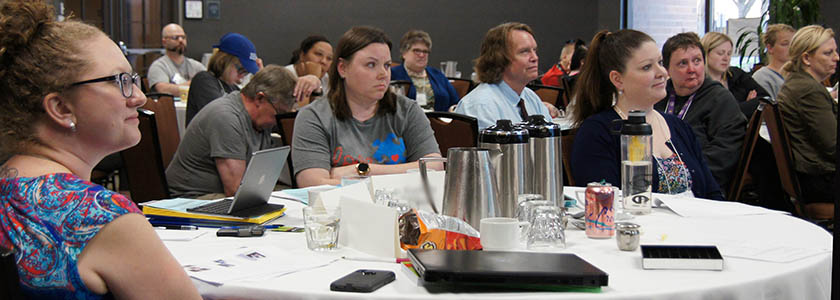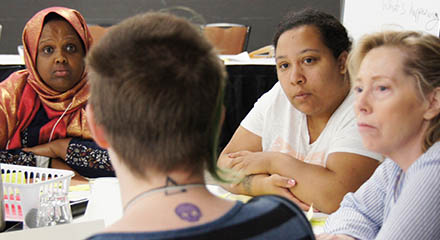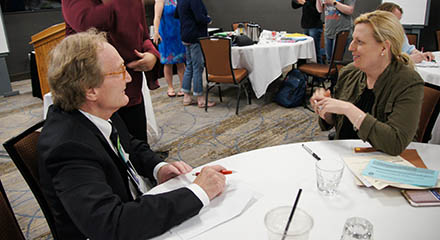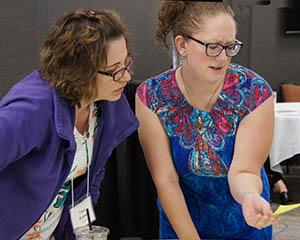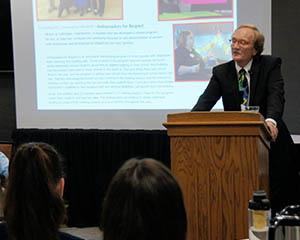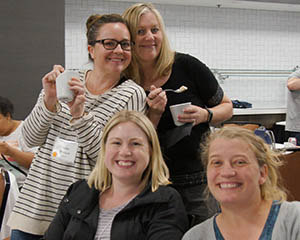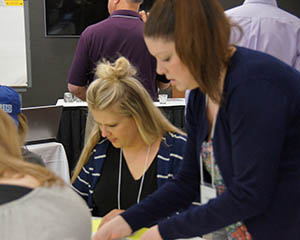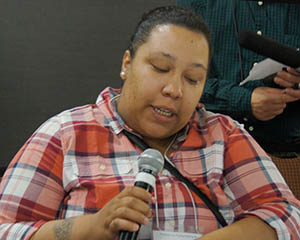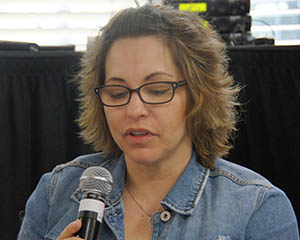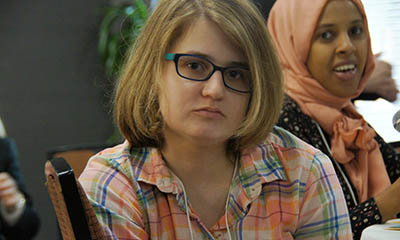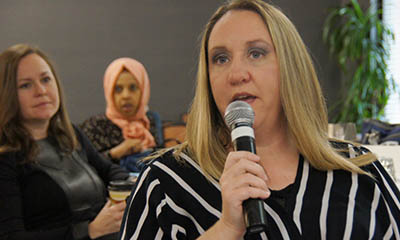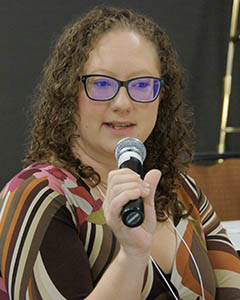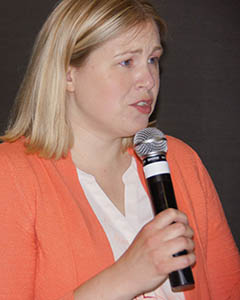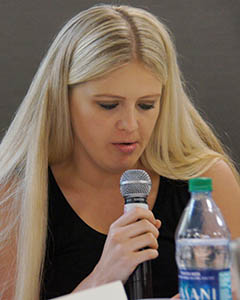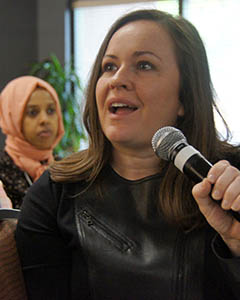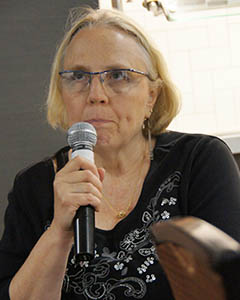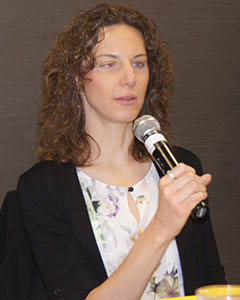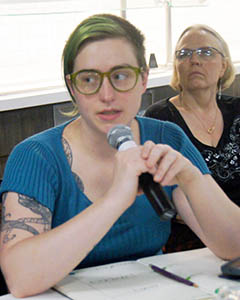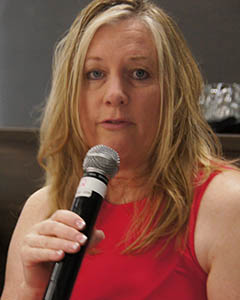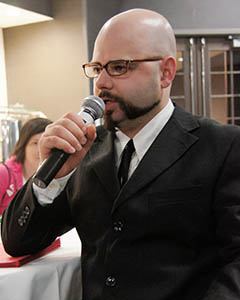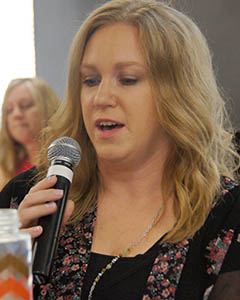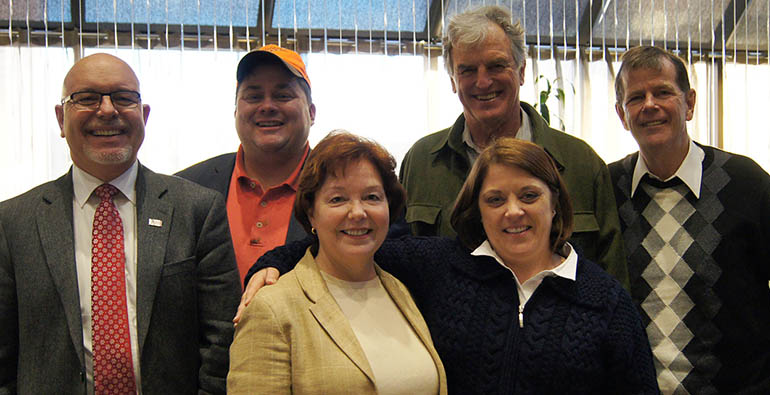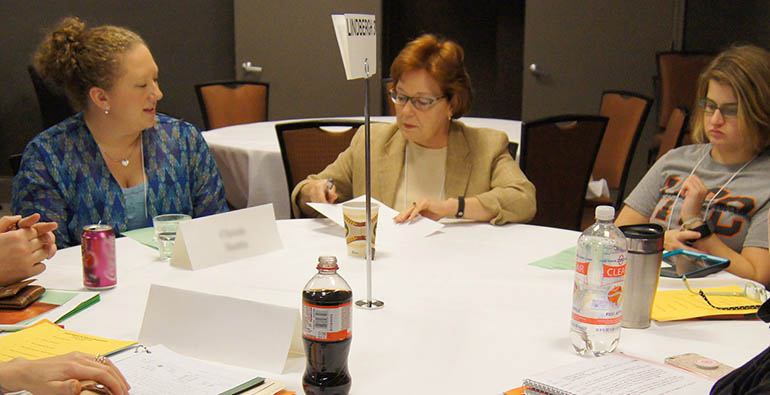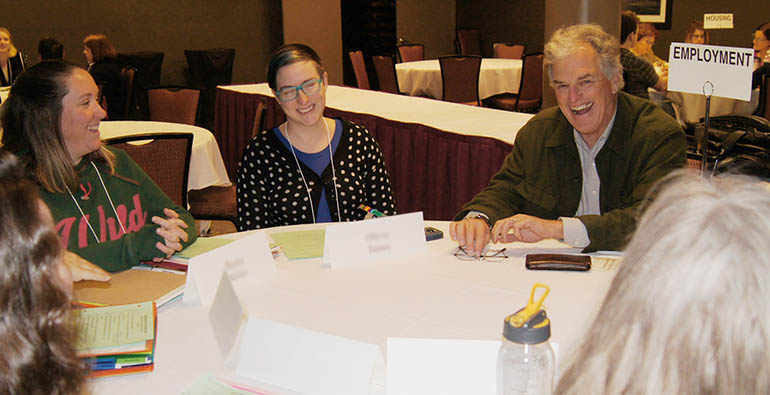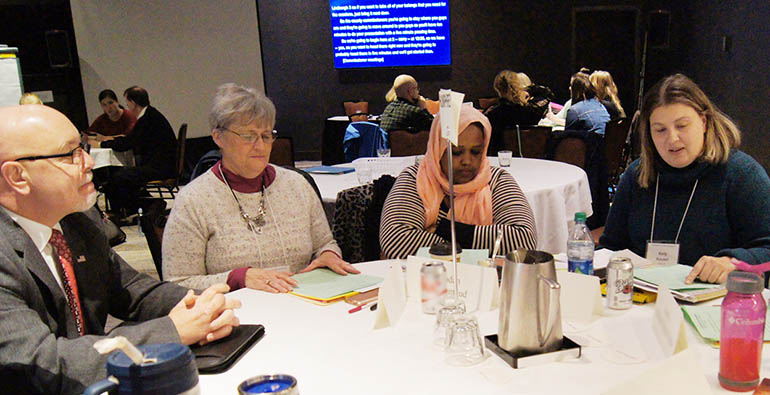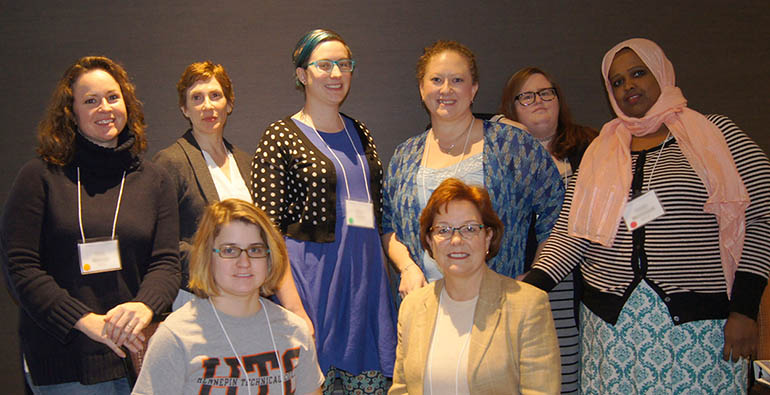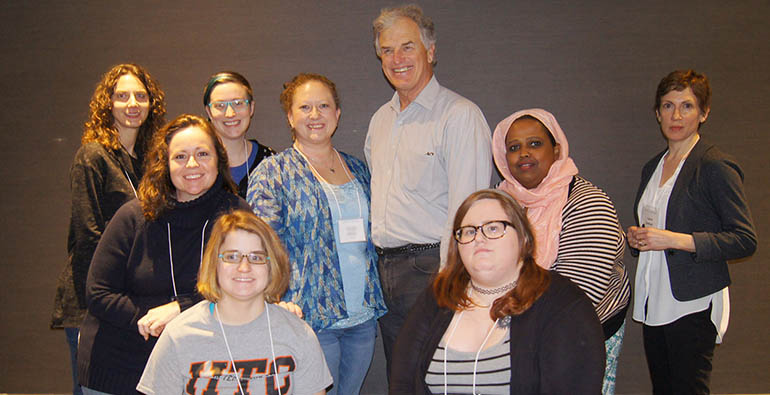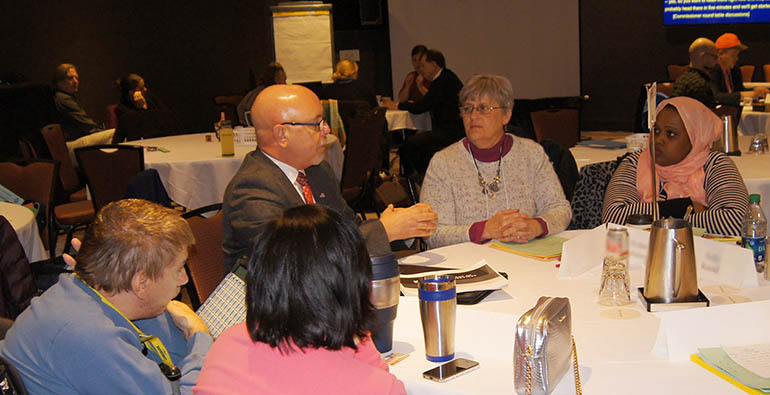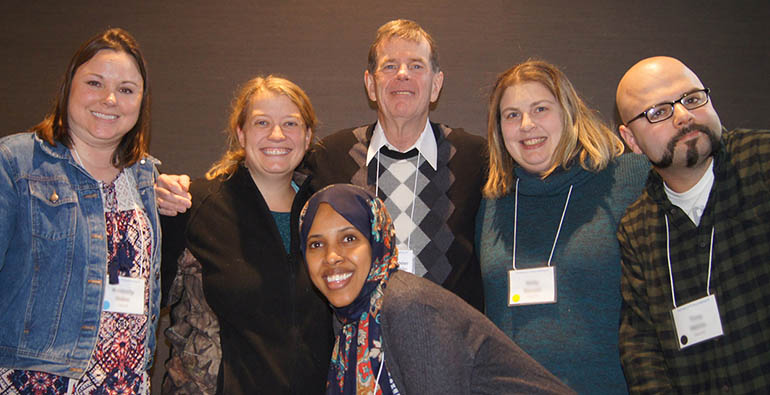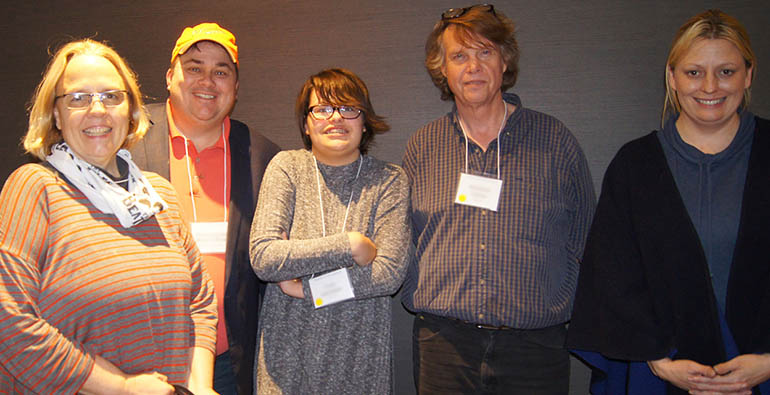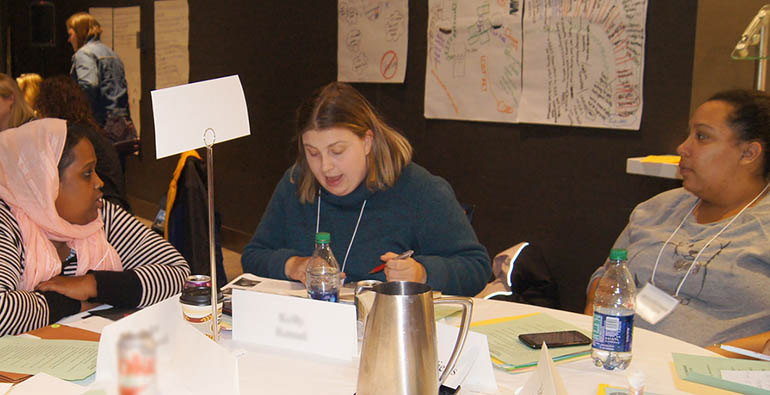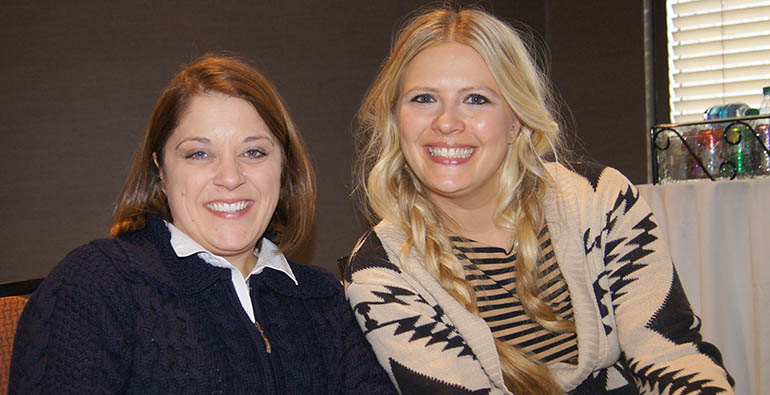Council-Sponsored Grant Activities: Partners in Policymaking®
Partners in Policymaking Class 35
Weekend 1 (September 15-16, 2017)
September 15 -16, 2017 was the kick off weekend for Class 35 Partners. The focus for this first session is history – how individuals with disabilities have been treated and perceived over time; and how programs and services have been created, delivered, and evolved in response; and where we are today. This history covers the Parent Movement, Independent Living Movement, and Self Advocacy Movement. Partners graduates shared their stories, personal experiences, and benefits they received from the program. Bonnie Jean Smith, parent trainer and Partners graduate presented an overview of the concept and principles of person centered thinking and person centered planning.
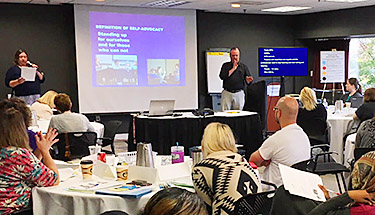
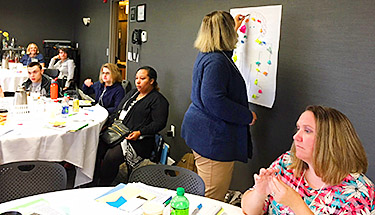
Weekend 2 (October 13-14, 2017)
The weekend of October 13-14, 2017 focused on Inclusive Education. Participants learned about the history of education for students with disabilities, the meaning of "inclusion" and how it promotes quality of life possibilities in school and community, and the concepts of universal design and differentiated instruction in the school environment. They identified creative and practical approaches for modifying or adapting the school curriculum and basic skills that students learn in the classroom. Roundtables with representatives from the Department of Education provided participants with a variety of resources about specific special education topics. That knowledge and skills were then put into practice with skits, complete with character roles and costumes, that applied the principles of civil discourse in navigating difficult meetings and reaching successful outcomes.
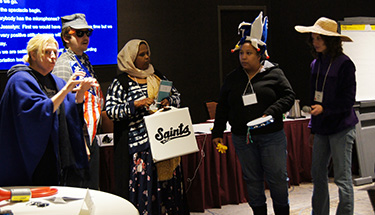
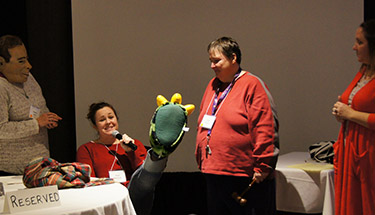
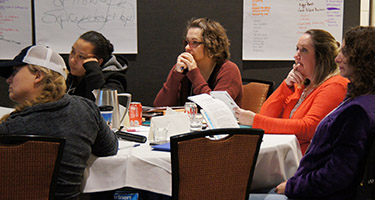
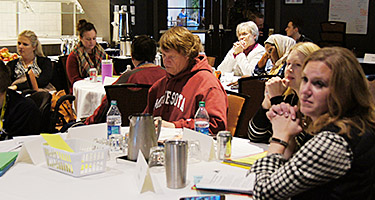
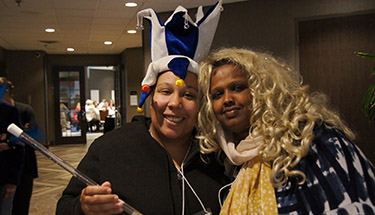
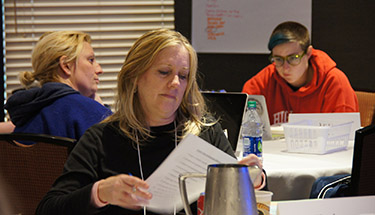
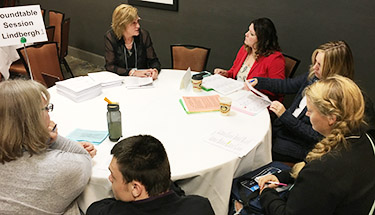
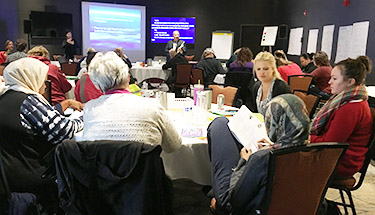
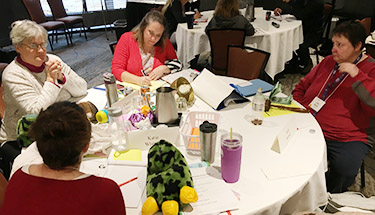
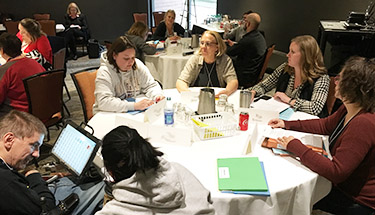
Weekend 3 (November 17-18, 2017)
November 17-18, 2017 covered the county level of government, how counties are governed, and the role and responsibilities of county commissioners. Participants worked in small groups to create vision statements for the Year 2025 and, using their artistic and creative talents, displayed their experiences with accessing services and efforts to determine service availability in their respective counties using a bus as a metaphor. A highlight of the weekend was meeting with county commissioners, beginning a conversation with them about policy issues of concern, and offering ideas for improvements that could make their vision of the future become reality.
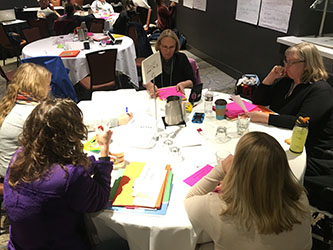

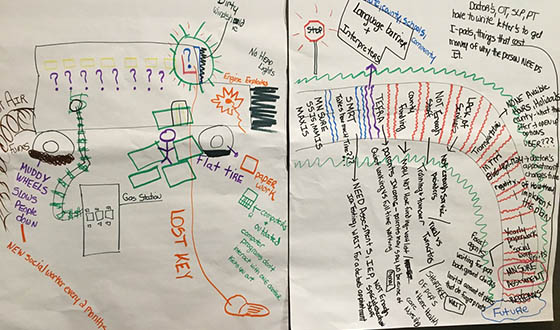
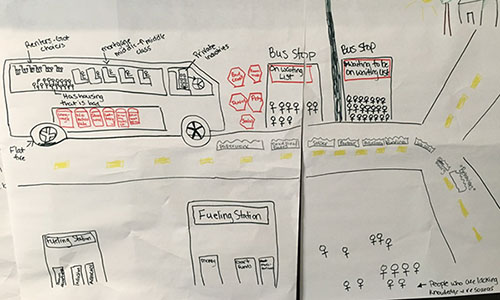
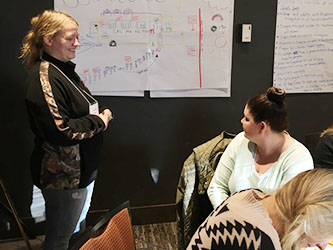
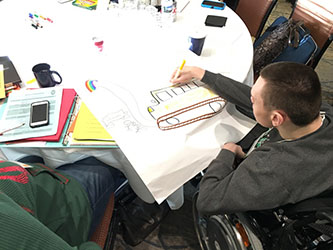
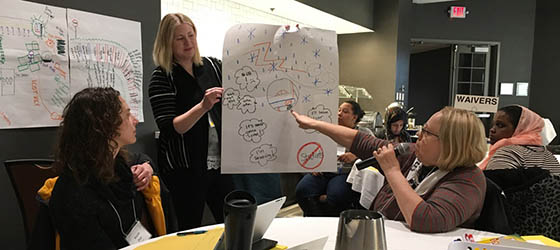
Weekend 4 (January 12-13, 2018)
Everyone needs a place to live and everyone wants stable, safe, and affordable housing. The fact that someone has a disability should not drive or limit housing options. The many types of housing available, styles of living, and personal preferences should be emphasized. Employment can be addressed in a similar way – most people want to work, they want to be productive and contribute. Finding a job that matches ones interests, what they enjoy doing, and personal characteristics are all factors in finding or creating a job where a person can be successful and meet new challenges to advance their employment and career options.
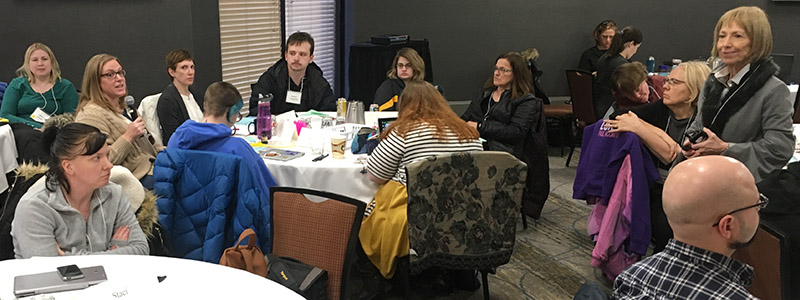
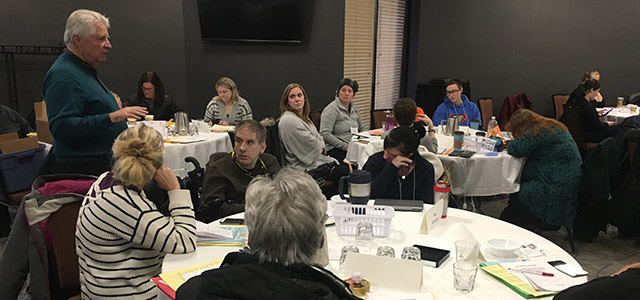
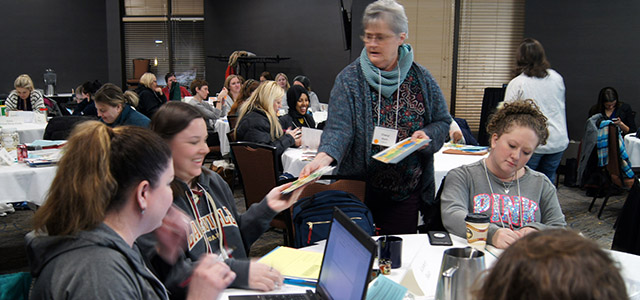
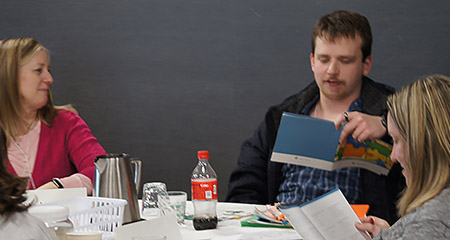
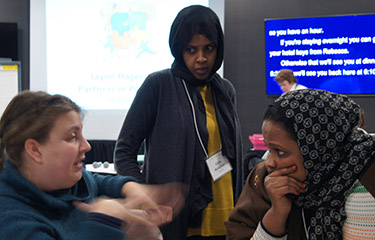
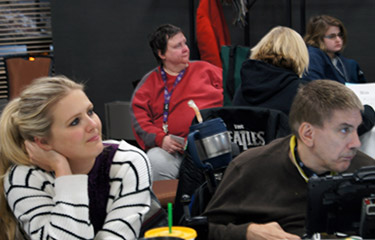
Weekend 5 (February 16-17, 2018)
Background information on the US Supreme Court's landmark Olmstead decision set the stage for understanding the origins of Minnesota's Olmstead Plan. The stories of Lois Curtis and Elaine Wilson, plaintiffs in the Olmstead lawsuit, were presented in a video, "A Life of Choices," emphasizing the principles of personal choice, person centered planning, and "most integrated setting." Tips on preparing and presenting testimony in the context of Minnesota's Olmstead Plan gave participants the opportunity to practice those skills in preparing comments on proposed Plan amendments.
Participants also learned the role and purpose of Parliamentary Procedure, and the rules most commonly used in meetings; and how to work most effectively with the media as another vehicle for drawing attention and gathering support for public policy issues that affect individuals with developmental disabilities and their families.
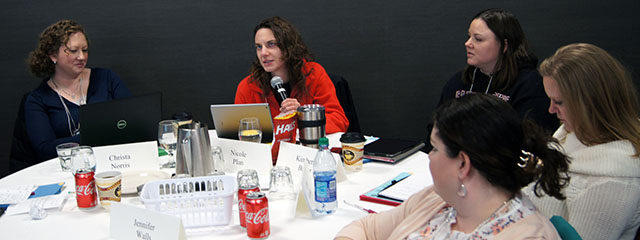
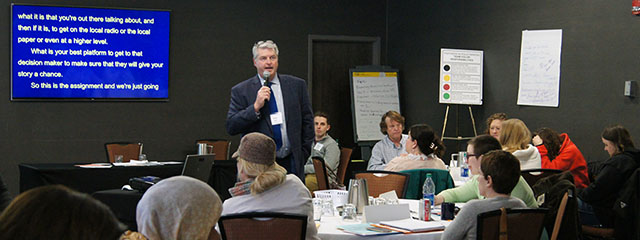
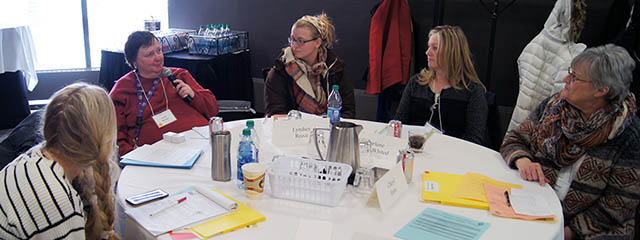
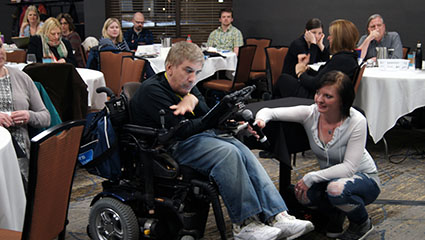
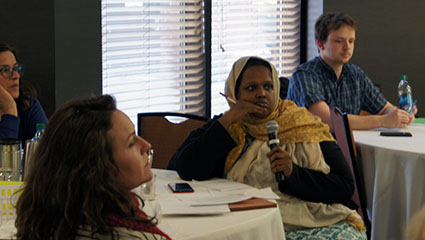
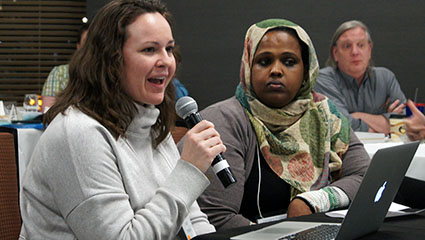
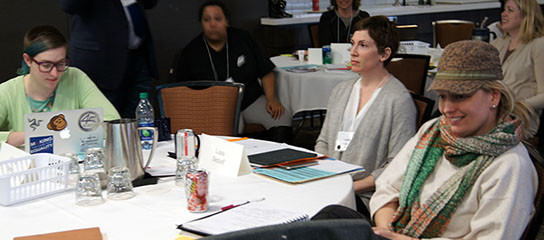
Weekend 6 (March 18-19, 2018)
Participants learned about the bill making process, how ideas are turned into bill language and navigate through committees, and the role that everyone who is interested in creating or changing public policy plays in educating elected officials about those issues. In small groups with a coach, participants reviewed a bill, assumed the role of various individuals who might speak for or against a bill, and prepared and presented testimony in mock hearings. Meetings with their legislators gave many participants a first opportunity to share personal stories about policies that may or may not work effectively for individuals with developmental disabilities and families, and how to educate and communicate well with policymakers around systems change
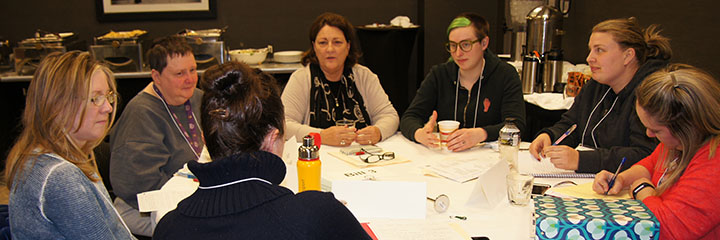
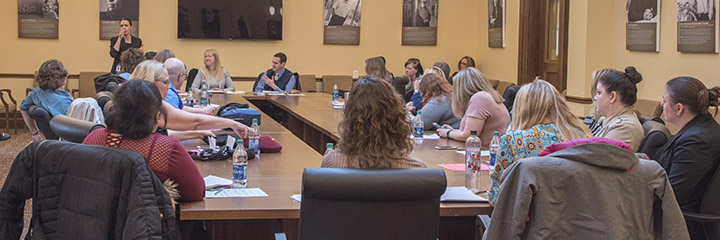
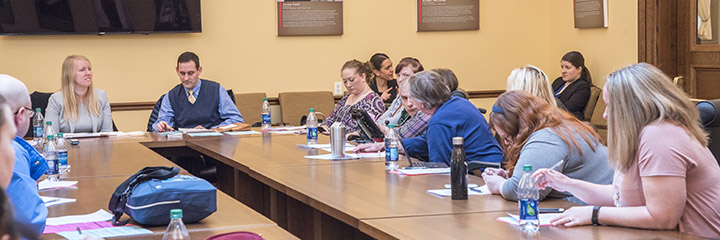

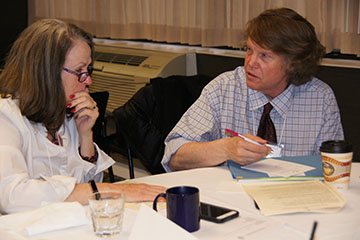
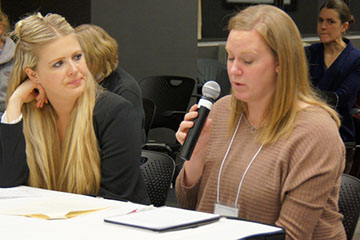
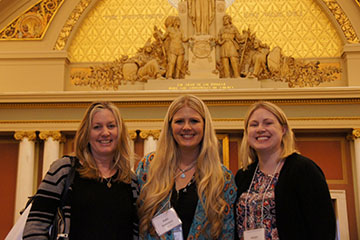
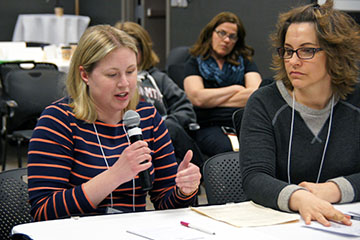
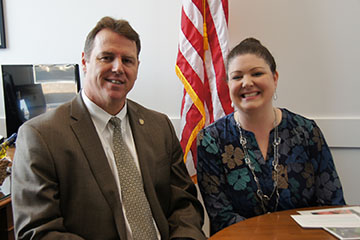
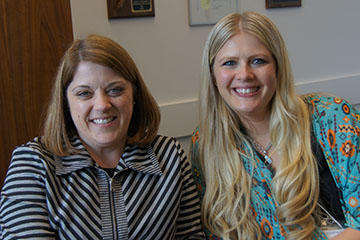
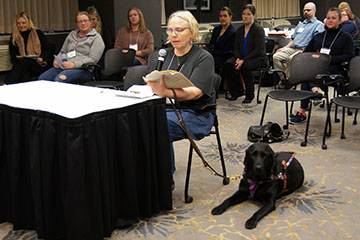
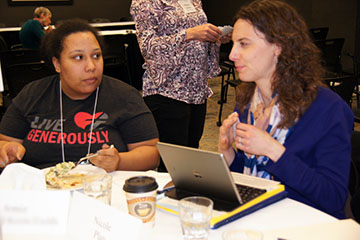
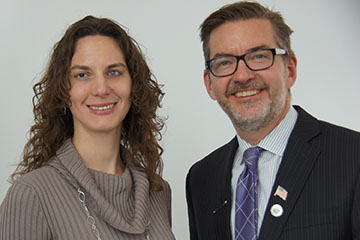
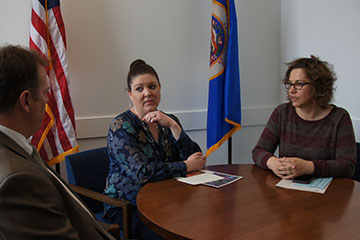
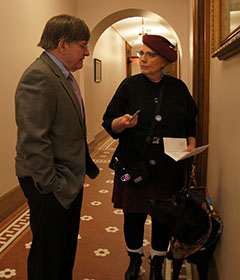
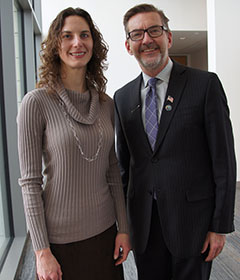
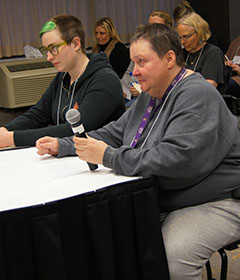
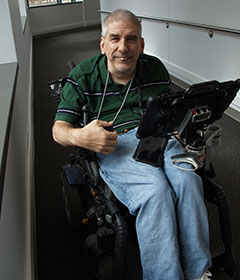
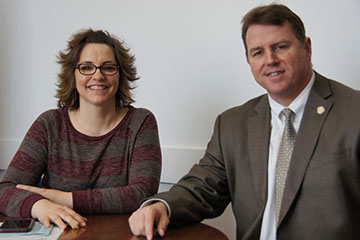
Weekend 7 (April 13-14, 2018)
This weekend addresses policy issues at the national level – public policy issues as well as federal funding and federal budget concerns. Legislation that would weaken rights under Title III of the ADA in places of public accommodation, education, health care and Medicaid, employment, and Social Security were presented; and concerns about the impact of each of these on the lives of individuals with developmental disabilities and their families were emphasized.


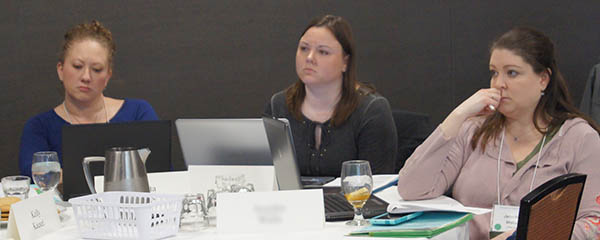
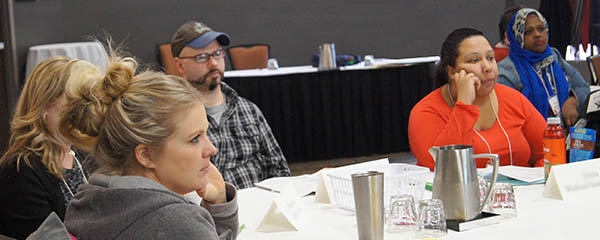
Weekend 8 (May 18- 19, 2018)
May 18 – 19, 2018 was the final weekend session for Class 35 Partners. District Court Judge Donovan Frank spoke of the many opportunities offered to members of the legal profession to learn about disability issues through Continuing Legal Education programs sponsored by law firms, and featuring self advocates, and the Attorney General's Office; through court decisions that more directly affect individuals with disabilities; and through the Disability Justice Seminars that were initiated in 2009 by the Minnesota Chapter of the Federal Bar Association.
Participants experienced narrative research in the making. Through "future back" exercises, they identified and explored the best scenarios and worst outcomes and then, by working backwards, eventually uncovered what led to the best and worst.
The Partners graduate panel, testimonials shared by Class 35 participants, and the graduation ceremony itself brought closure to the Class 35 program year. This was also the year that celebrated 1,000 Partners graduates in Minnesota.

